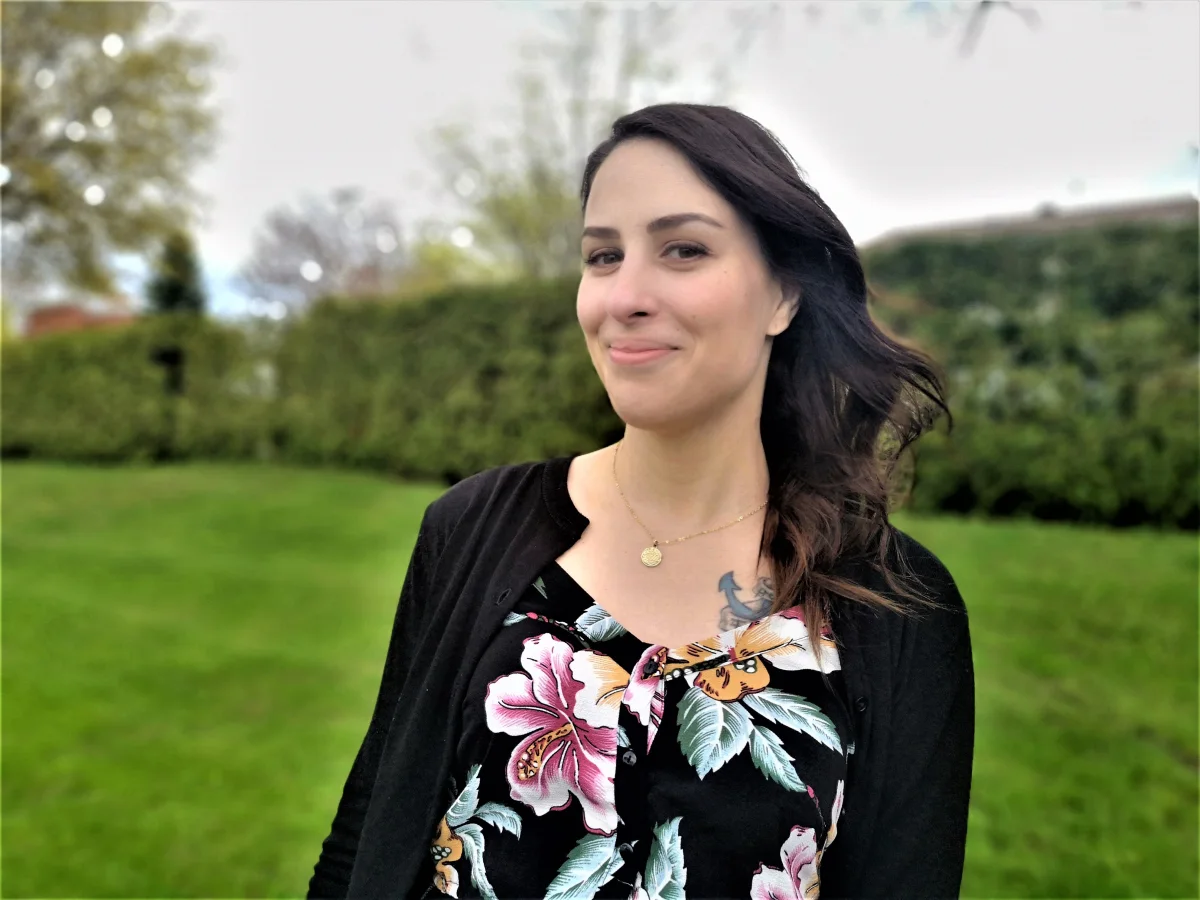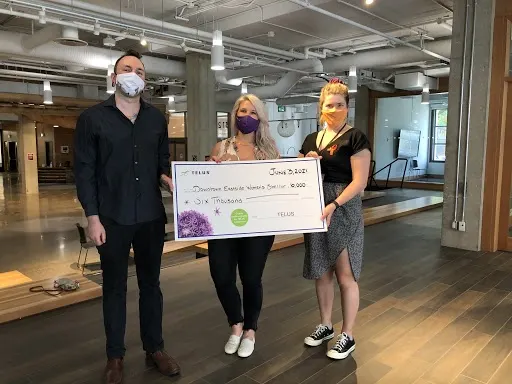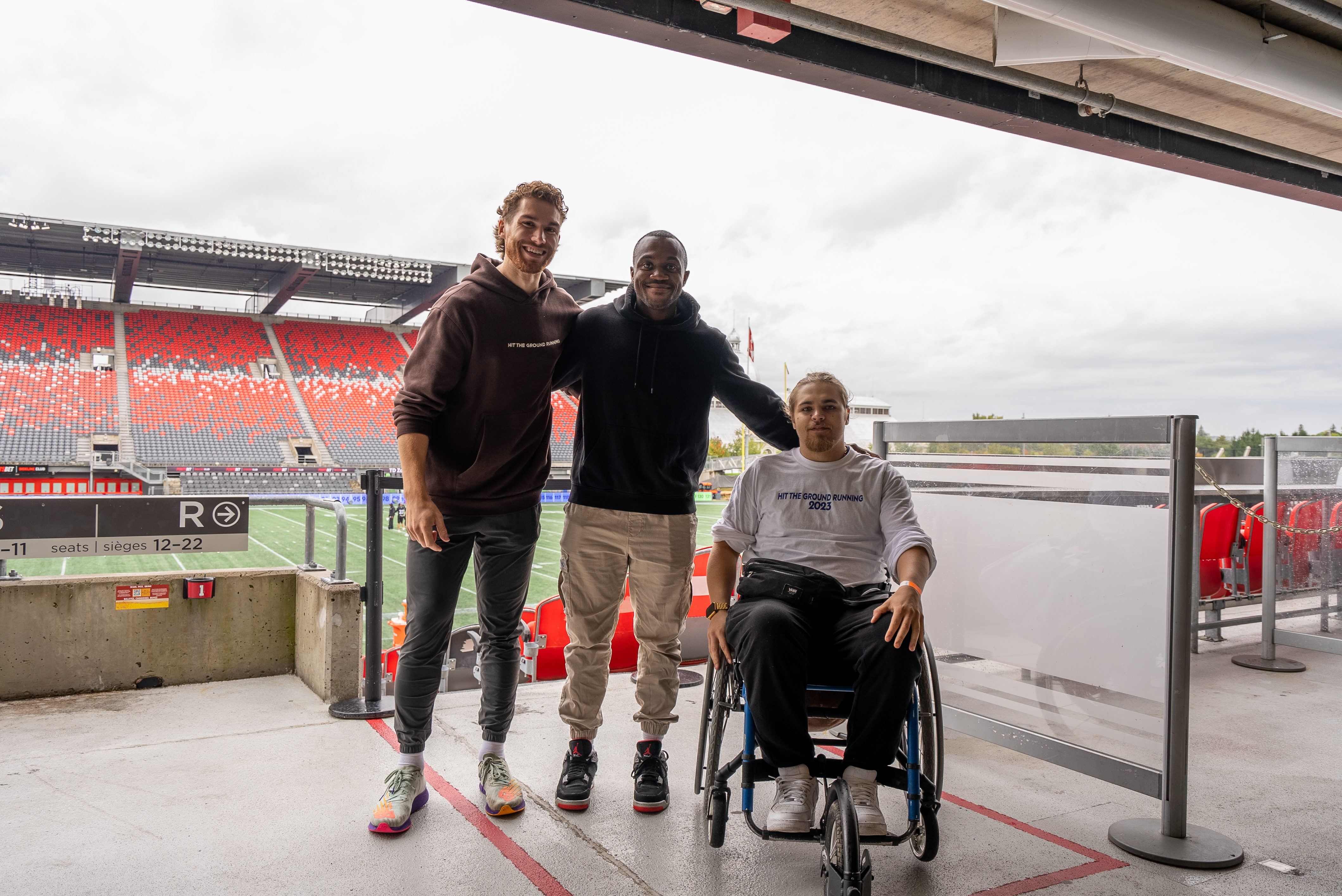
Giving back
How one woman's story of domestic abuse is helping others heal
Jun 23, 2021
(Above) The strength Félicitée April (pictured) found in talking about her experience as a victim of domestic abuse inspired her TELUS team members to rally behind two charities working to empower women and provide safe, emergency shelter within their respective communities.
Even in her wildest dreams, Félicitée April did not expect that the simple act of sharing her story would help raise nearly $20,000 for victims of domestic violence.
“I felt like I had to say something because domestic violence is so much more common than you think,” said April, an administrative assistant with TELUS in Rimouski, Que.
“No one talks about it because when it happens to you, you feel ashamed, and I don’t think that’s OK. As a society, we should not let victims feel ashamed about what happens to them.”
The strength April found in talking about her experience as a victim of psychological and sexual abuse helped to inspire team members in both Quebec and British Columbia to rally behind two charities working to empower women and provide safe, emergency shelter within their respective communities: La Débrouille shelter in Rimouski and the Downtown Eastside Women’s Centre in Vancouver. Due to the pandemic and social-distancing measures, colleagues led individual fundraising efforts, with TELUS doubling those results through a matching donation.
Normally, April considers herself a private person. But the more she talked about what she went through, the more she realized her story was all-too familiar to many.
“It’s probably one of the rare times that people would come up to me and say, ‘Hey, thank you for saying that because I was in an abusive relationship too and I never talked about it’ or ‘Both my sisters were in abusive relationships and they still feel bad about what happened,’” she said.
According to the Canadian Women’s Foundation, 67 per cent of Canadians say they know a woman who has experienced physical or sexual abuse. Even more troubling, a woman in Canada is killed by her partner every six days. And on any given night, more than 6,000 women and children sleep in a shelter to escape a dangerous situation at home.
April, a single mother of a four-year-old boy, considers herself to be one of the lucky ones.
When she finally decided to flee a toxic marriage in the U.S., she knew she could do so with the full support of her family and friends in Quebec.
April and her son moved back into her childhood home with her parents, and she was confident she would eventually find work again because she had a Master’s degree.
Not all women in abusive relationships can make the decision to leave as easily.
“Some women know that if they leave their relationship they will have nowhere to go,” said April.
“That’s why these shelters are so important. My story is sad, but it’s not that sad in the sense that I had the support.”
Courage to leave
April says her marriage was abusive from the start.
She was constantly put down, and, living in the U.S., isolated from friends and family.
It took her a long time to find the courage to leave because she didn’t realize she was a victim of emotional abuse. Her ex-husband never hit or yelled at her, but she was constantly gaslighted.
“When you’re being put down every day, it’s hard to believe that you’re actually worth something,” she said.
She also felt ashamed of her situation -- an emotion she now knows was misplaced.
“I was hiding it because I didn’t want people to know that something was off in the relationship. I wanted to project this image that my relationship was just fine.”
In the end, she left because she feared for her and her son’s safety.
When she arrived back in Canada, she sought help from a counsellor at La Débrouille and slowly realized that she was actually the victim, not the perpetrator as her ex led her to believe.
Handing over a cheque to the shelter was an important, and deeply emotional, step in her healing journey.
“I feel like I owe them so much and now I was able to give back to them,” she said.
“Back then, I didn't see how I could ever express my gratitude, but now I’m finished with that chapter. I had a really hard experience. I learned so much from it, and I’m just done with the book. The book has burned.”

The money provided by TELUS to La Débrouille in Rimouski, Que. will help to financially support women and children as they rebuild their lives, including helping to pay for specialized medical services, home security systems, and counselling.
La Debrouille provides shelter to more than 100 women and 50 children every year in the Lower St.-Lawrence region. It also supports an additional 150 women on their healing journey. The money provided by TELUS will help to financially support women and children in need, including helping to pay for specialized medical services, home security systems, and counselling.
“It’s important to shed light on the consequences of domestic violence, but too often we forget to talk about those who got out of it. Félicitée April is a remarkable example of resilience and courage, and I have no doubts that she will inspire other women to relearn to love and respect themselves,” said Geneviève Lévesque, the organization’s co-manager and coordinator.
In Vancouver, the Downtown Eastside Women’s Centre provides practical support to more than 500 women, children, and seniors every day. As well as providing a refuge and shelter from poverty and violence, the centre provides basic necessities including hot meals, clothing, secure mailing addresses and phone and computer access.

The Downtown Eastside Women’s Centre in Vancouver, BC provides hot meals, clothing and support to more than 500 women, children, and seniors every day.
April says she continues to be moved by the generosity and sense of community she gets from her TELUS colleagues.
Her team is always brainstorming how they can give back, whether it’s planting flowers to beautify a local neighbourhood or delivering sandwiches to the homeless.
“When you get into TELUS, you see that the company is so focused on giving back to the community,” she said.
“You get educated about these things and how important they are.”
To empower more women like Félicitée April on their healing journey, visit
dewc.ca
and ladebrouille.ca
.

